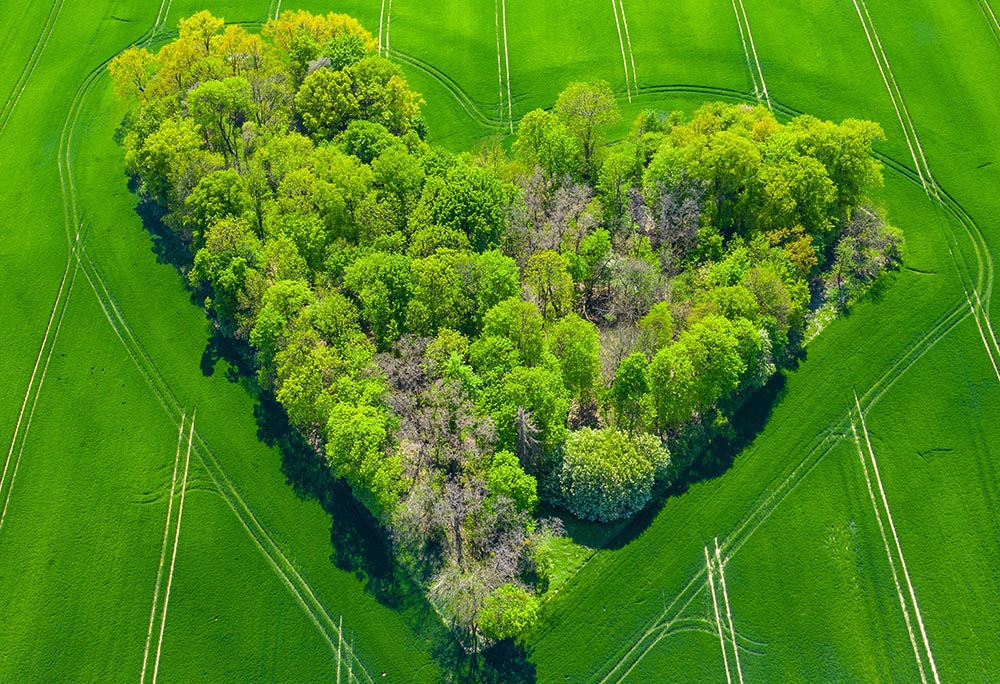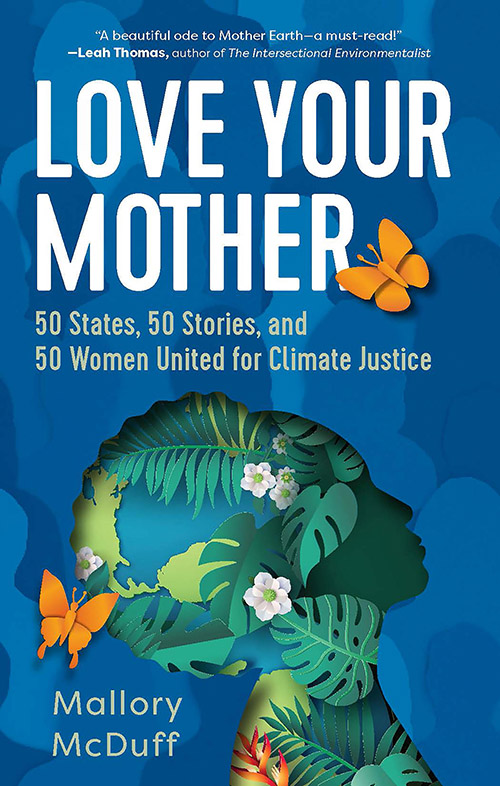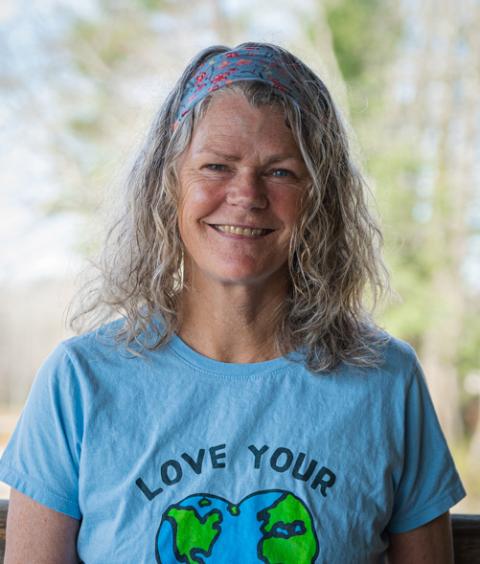
(Pixabay/Mariusz Prusaczyk)

It's nearly impossible to ignore the severe weather events pummeling communities across the United States. We can no longer avoid the impacts of a warming climate, nor avoid acknowledging the human activity that contributes to this global predicament.
For young generations, worry about the climate crisis is causing rising anxiety, sadness, anger, powerlessness and guilt, according to a study published in the The Lancet. Overarching our children's and grandchildren's discontent is concern that they may inherit an Earth in diminishment or headed toward extinction.
Which is exactly why Love Your Mother: 50 States, 50 Stories, and 50 Women United for Climate Justice is an exceptional, well-timed book for the moment we are in. Authored by Mallory McDuff, a lifelong Episcopalian, mother and professor of environmental education, this book highlights 50 female activists — one for each U.S. state — who represent a new kind of leadership in the movement for climate justice.
Love Your Mother is chock-full of uplifting, well-crafted stories of diverse women and girls, ages 14-70, working for a viable planetary future from Alabama to Alaska, from Wisconsin to Wyoming.
Acclaimed writer-naturalist Terry Tempest Williams (Utah) and inaugural poet Amanda Gorman (California) are both featured in the volume, though most of the activists are lesser known, another strength of the book. Readers will meet average Americans, just like them, who encounter a problem or injustice in their community and start a mini revolution.
McDuff introduces us to the young Black activist and student Mari Copeny (Michigan), who took to TikTok with the handwritten sign, "Flint, MI has been without clean water since April 24, 2014," and at age 8, convinced President Barack Obama to come to town and pledge $100 million to begin fixing the crisis.
We also learn about Bernadette Demientieff (Alaska), a mother and grandmother who honors the spiritual guidance of her Gwich'in Indigenous elders in protecting caribou in the Arctic National Wildlife Refuge. When she wasn't making headway with lawmakers to block oil and gas drilling there, her organization targeted several U.S. national banks financing the fossil fuel industry.
This is McDuff's fifth book centered on protecting Mother Earth. Her first two books, Natural Saints (2010) and Sacred Acts (2012) focused on how people of faith and church communities, respectively, are mobilizing to confront climate change.
She teaches at Warren Wilson College outside Asheville, North Carolina, and lives on the campus with her two young-adult daughters in a 900-square-foot house with an expansive view of the Appalachian Mountains.
"I spend my entire life with young people," McDuff says, "and it's a dire world for them. I think my job as a teacher is not to create false hope, but to connect my students with people in the world they can join with in collective action, reinforcing that they are not alone."
For McDuff, hope is grounded in concrete action and working together in community. And that's exactly what she discovered delving into stories of these poets, physicians, climate scientists, oceanographers, state legislators, farmers, students, documentary filmmakers and more.
"What stood out to me among these women was that they weren't acting alone, McDuff says. "There's not one story where a woman working for climate justice was acting like a Lone Ranger; in each case, it was women in collaboration with others."
Love Your Mother is replete with shining examples of women who value relationships and weave deep community together as a springboard for collective momentum. In capturing these stories, McDuff recognized her own reflex to "link arms" with the women in her networks to get vital work done.
"When I reflect on the women whom I call at the end of the day to debrief my day, and the collaborative, relational tenor of our friendships," McDuff says, "that's the spirit and essence of the friendships I found in these stories. Women bring the relational piece to climate leadership."
McDuff leaned on climate leaders nationwide to identify women and girls "whose stories should be lifted up." And no, there wasn't a state where she couldn't locate a rockstar climate activist. (She's been asked that endlessly.) In fact, whittling down her selection to one representative per state was the real challenge.
Half of the 50 women profiled in Love Your Mother identify as Black, Indigenous or people of color (BIPOC). This was intentional on McDuff's part. She went out of her way to represent a wide spectrum of identities and backgrounds in an increasingly nonbinary world.
"We know that the impacts of the climate crisis disproportionately affect women globally, communities of color, and the poor," McDuff says. "I'm a 57-year-old white, straight, single mom raised in the Deep South, so I wanted to be careful not to tell other people's stories for them, but to reflect their story and be in dialogue with them."
Advertisement
The book also spotlights women who bring an intersectional lens to climate advocacy and are keenly committed to the inclusion of multiple perspectives and lesser-heard voices. For example, Tiffany Bellfield-El-Amin (Kentucky) is a birth doula, farmer and restaurant owner. She navigates the intersections of being a third-generation Black farmer in a state with only 600 Black-owned agricultural businesses (less than 2% of all farmers). As a birth doula, she understands the lack of access to health care for Black mothers and how a changing climate worsens conditions for the most vulnerable.
At the heart of this compact hardcover, McDuff says, "the call to love was epic." For her, love is the very nature of God, which conducts itself as an action-verb, not a noun. She adds: "The issue is not how we deepen our love for creation, but how we act on what we already love."
The beauty of Love Your Mother is that it provides such a vast array of climate solutions that there's bound to be a handful that will perk your own passionate interest. I found myself reading these stories, thinking, "Now that's the kind of volunteer project I'd like to get involved in." The book concludes with a robust listing of resources, partnerships and organizations to get you started.
It's easy to become overwhelmed by the magnitude of the climate crisis, to harp on the minimal impact one person can have, or to throw your hands up in frustration. This book provides an earnest tap on the shoulder for those of us who need to cut back on the doom-scrolling and put our energies into a more active hope.









